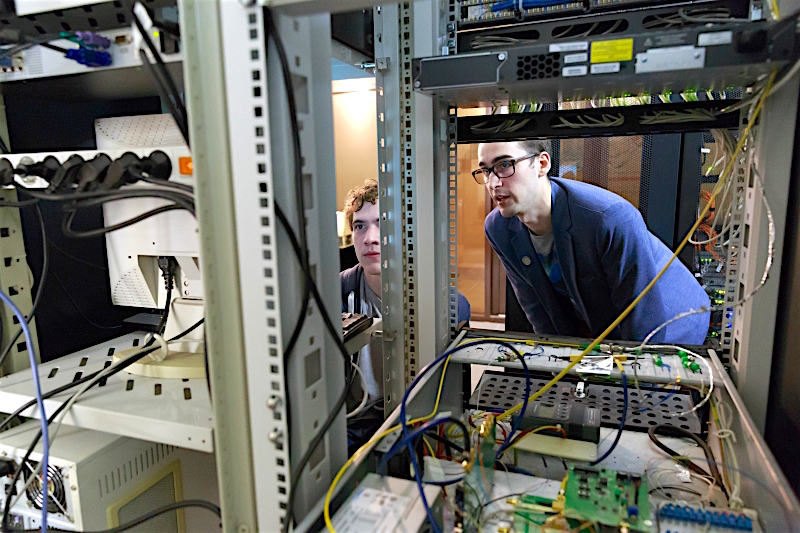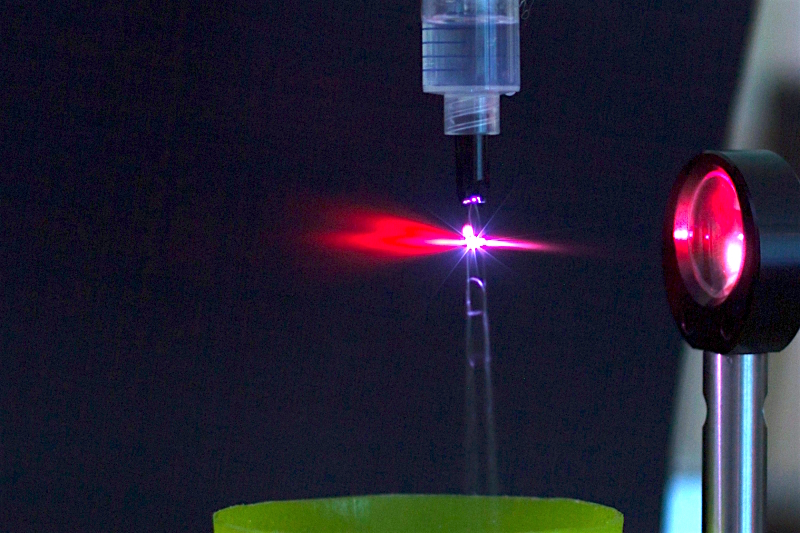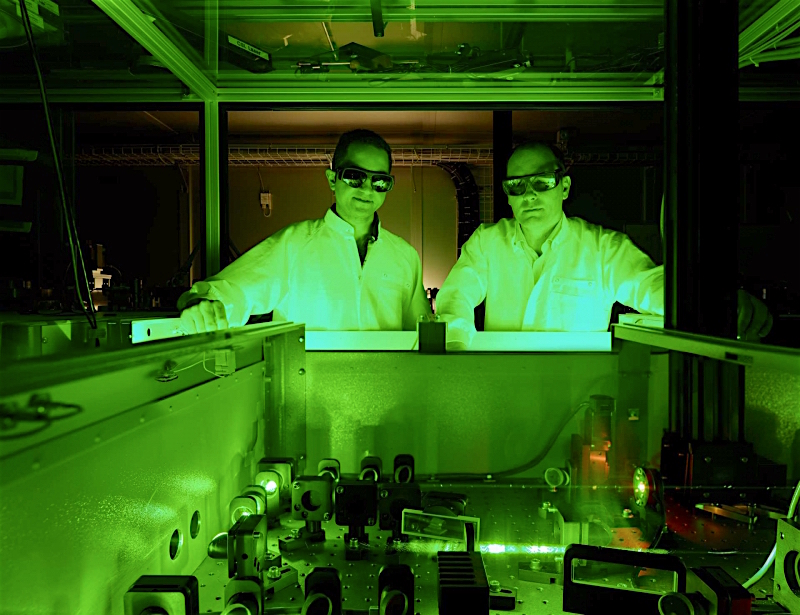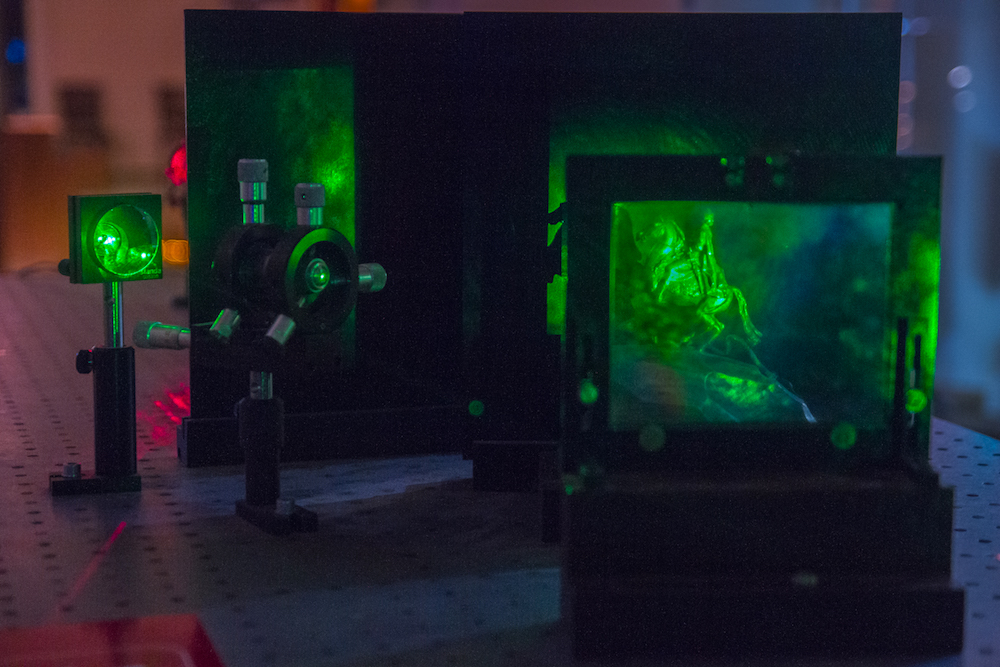https://habr.com/en/company/spbifmo/blog/487434/- ITMO University corporate blog
- Studying in IT
- Physics
Master’s degrees are really useful. Postgrad education allows BA holders to put their new-found skills into practice, and secure great jobs further down the road. But students often need help assessing this choice, particularly if they majored in uncommon subjects — like photonics.
To set the record straight, we talked to the people behind, and the graduates of our
MA programs in photonics and optical computing. In this article you’ll learn about part-time work available for photonics students, graduates’ job-hunting prospects, and the academic career options that open up.
 © ITMO University
© ITMO University
Your first job in the field
We reached out to Anton Tsypkin, the head of the
Femtosecond Optics and Femtotechnologies lab at the International Institute of Photonics and Optical Information Technology. He claims that MA students get their first taste of professional work right at the university: “Our students work at the labs they use for their thesis. This greatly benefits their research. Actual studying only takes up half of their time, so the rest of it can be spent on other scientific projects.”
Kseniya Volkova, a recent ITMO graduate, was an engineer at the university’s quantum computing lab during her time as a student: “We were developing a free-space quantum communication system for a government-funded remote data center management project. My work in particular had to do with the system’s multiplexing capabilities. This research ended up becoming the foundation of my university dissertation. It’s good to know that my findings were immediately put to use in a commercial project commissioned by SMARTS JSC.”
Kseniya notes that outside work can be troublesome — the schedules might overlap. That is not the case when you’re employed by the university itself: “You can easily work while studying at ITMO, particularly if you get involved with an interesting research project. During my time at the university around 30% of all students worked “on the side”. The number of students employed by the university itself was significantly higher.”
 © ITMO University
© ITMO University
Another graduate, Maksim Melnik, has had a similar experience. He got a master’s degree in 2015, and a Ph.D in 2019: “I got a job at the
Femtosecond Optics and Femtotechnologies lab in 2011, as a third-year undergrad. At first, I only did research. After I started my Ph.D, I was assigned a bunch of administrative tasks.” Maksim highlights the benefits of this approach — it lets you get a lot of practice: “Almost all my classmates had research jobs during their time at the university.”
Outside practice and commercial work
MA students’ work opportunities are not limited to those provided by the university itself. Businesses that welcome the help of current students and hunt recent graduates include the Krylov State Research Center, the pre-clinical and translational medicine dep. of the Almazov National Medical Research Center, and more.
“Several of my classmates worked at, and had their research supervised by the employees of TYDEX and “Peter-Service”. Some continued working there after the graduation.”
— Maksim Melnik
Yuri Kapoiko chose a different career path. “He started out as an engineer at
CRTS, where he’s currently the chief constructor of the Almanac aircraft surveillance system. The system is already in use at St. Petersburg’s Pulkovo airport, and will be deployed to a number of other airports across the country,” — says
Olga Smolyanskaya, the head of the Femtomedicine lab at the International University of Photonics and Optical IT.
 © ITMO University
© ITMO University
University staff tends to support students’ — including non-seniors’ — desire to work. “Several of my students work as programmers, engineers or drafting technicians. They were all given research options that closely align with their professional activities. They range in age from freshmen to seniors,” — says Olga Smolyanskaya.
Future employers highly value their hires’ ability to use specialised optical equipment and software. You’re expected to be able to measure objects’ optical properties, estimate the measuring systems’ resolutions, gather and analyse data. Machine learning skills are also a huge plus.
“The labs at the International Institute of Photonics and Optical Information Technology are impressive. A variety of optical and measuring equipment — from simple fibre components to complex high-frequency oscilloscopes and single-photon detectors — are available for students to use.”
— Kseniya Volkova
PhD and a career in academia
Not all MA graduates want to transition to commercial work. Some want to continue doing research at their alma mater. This was Maksim Melnik’s choice. He got promoted to the position of deputy executive engineer, and is currently in charge of the department’s international collaborations:
“Apart from doing actual research in non-linear optics, terahertz optics, and ultrashort pulses, I manage and curate a number of projects. I organize the university’s annual international “Research Summer Camp in Photonics”, as well as sit on the board of the “Basic Problems of Optics” conference. At the moment, I am responsible for the successful completion of 4 government-funded scientific projects.”
— Maksim Melnik
 © ITMO University
© ITMO University
A number of ITMO labs are interested in hiring students that want to build a career in science: “We work with folks who want to dedicate their lives to science. Smart young people are in demand all around the world — including Europe and in the USA. For example, this spring [2019] our collaborator from Shenzhen (China) was looking for postdoctorate researchers and offering a $3,500 monthly salary,” — says Nikolai Petrov, the head of
the Laboratory of Digital and Display Holography.
ITMO University is well regarded by the international scientific community, and its graduates can easily build academic careers outside the walls of their alma mater. Kseniya Volkova picked this particular path — and is applying for a Ph.D program in Switzerland. “Many of my acquaintances [from ITMO] are employed by foreign universities or have their work funded by international grants,” — says Maksim Melnik. As you can see, work and study aren’t mutually exclusive — particularly, if you’re an ITMO postgrad. Our university welcomes students that want to practice what they study, and, upon graduation, these people can easily find jobs.
Further reading:



